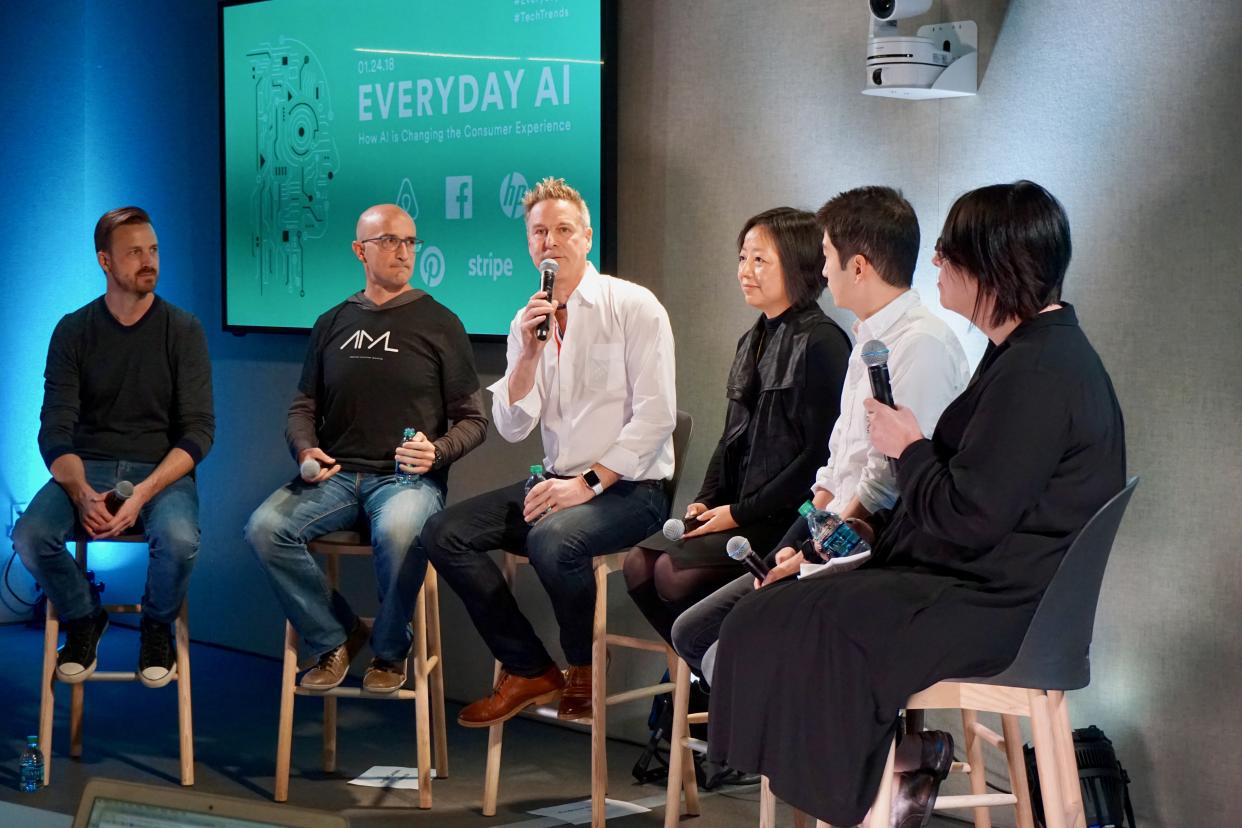Facebook, Airbnb and HP talk about the future of AI

Robots and newer technologies have benefitted some of Silicon Valley’s biggest tech companies and their users, but it’s hard to ignore what artificial intelligence will do to jobs.
At Facebook (FB), for instance, 4.5 billion posts are shared on people’s News Feeds every single day, 600 million of which are translated into different languages on-the-fly, through the power of machine translation, said Joaquin Candela, Facebook’s director of applied machine learning. Airbnb, meanwhile, uses artificial intelligence and machine learning to make search results more personalized. Even Hewlett Packard (HPQ) deploys AI by way of vibration sensors that can tell from the sounds their printers make to warn its users whether the devices will eventually fail or run out of ink two weeks in the future. Subtle, but certainly smart.
But as these technologies evolve and grow more capable in the coming years, the conversation has also taken on an increasingly cautionary tone. Indeed, the topic is very much top of mind this week at Davos. Depending on the study, the job displacement estimates vary from mildly concerning to downright doomsday in tone. The World Economic Forum, for instance, predicts that come 2021, over 5 million jobs in 15 countries will be lost because AI, machine learning, and automation. According to Forrester Research, 16% of U.S. jobs will be replaced by 2025, while the equivalent of 9% new jobs will be created during the same period — a net loss of 7%.
Andrew Bolwell, vice president and global head of HP Tech Ventures, the corporate venture arm of HP, expressed a similar sentiment.
“I would hope over the next few years that we see a lot more of those use cases where it’s man and machine instead of man versus machine,” Bolwell explained.
“There’s a lot of talk,” acknowledged Mike Curtis, Airbnb’s vice president of engineering. “How can we spend more time thinking about leveraging technology to help people’s jobs rather than taking them away?”
Will AI replace humans?
Curtis added that society has seen many instances of automation in the past, where it may replace a certain class of jobs in the short-term, but it pushes people to work in professions that are “fundamentally more human” or require more of the human touch. That dovetails with the general consensus in Silicon Valley, that while jobs will certainly be displaced, new kinds of jobs will also be created. Just because self-driving cars could become the norm in the years and decades to come doesn’t mean that today’s professional drivers become 100% obsolete. They may retrain in new kinds of jobs, for instance, to service such automated technologies, provided the educational tools are there and readily available.
“We need to go all-in on education,” explained Candela, who also predicted society is on the brink of facing an ethics revolution around these evolving technologies, which will create new opportunities in areas we can only currently imagine.
Added Bolwell: “The big issue today, is the rate of automation and whether that’s outpaced the pace at which we can create those new roles.”
That’s a question without an easy answer, but one possibly such Silicon Valley leaders can help address.
—
JP Mangalindan is the Chief Tech Correspondent for Yahoo Finance covering the intersection of tech and business. Email story tips and musings to jpm@oath.com. Follow him on Twitter or Facebook.
More from JP:
6 trends Facebook Messenger’s chief sees for messaging in 2018
AMD CEO: Our processors are more affordable than Intel’s
Sennheiser co-CEO: Why we’re betting on AR and VR with 3-D audio
AMD CEO on chip security flaws: ‘We’re absolutely all over’ security
Amazon Web Services CEO: We’re going to see an ‘explosion’ of voice apps
Facebook targets 6- to 12-year-old demographic with Messenger Kids


